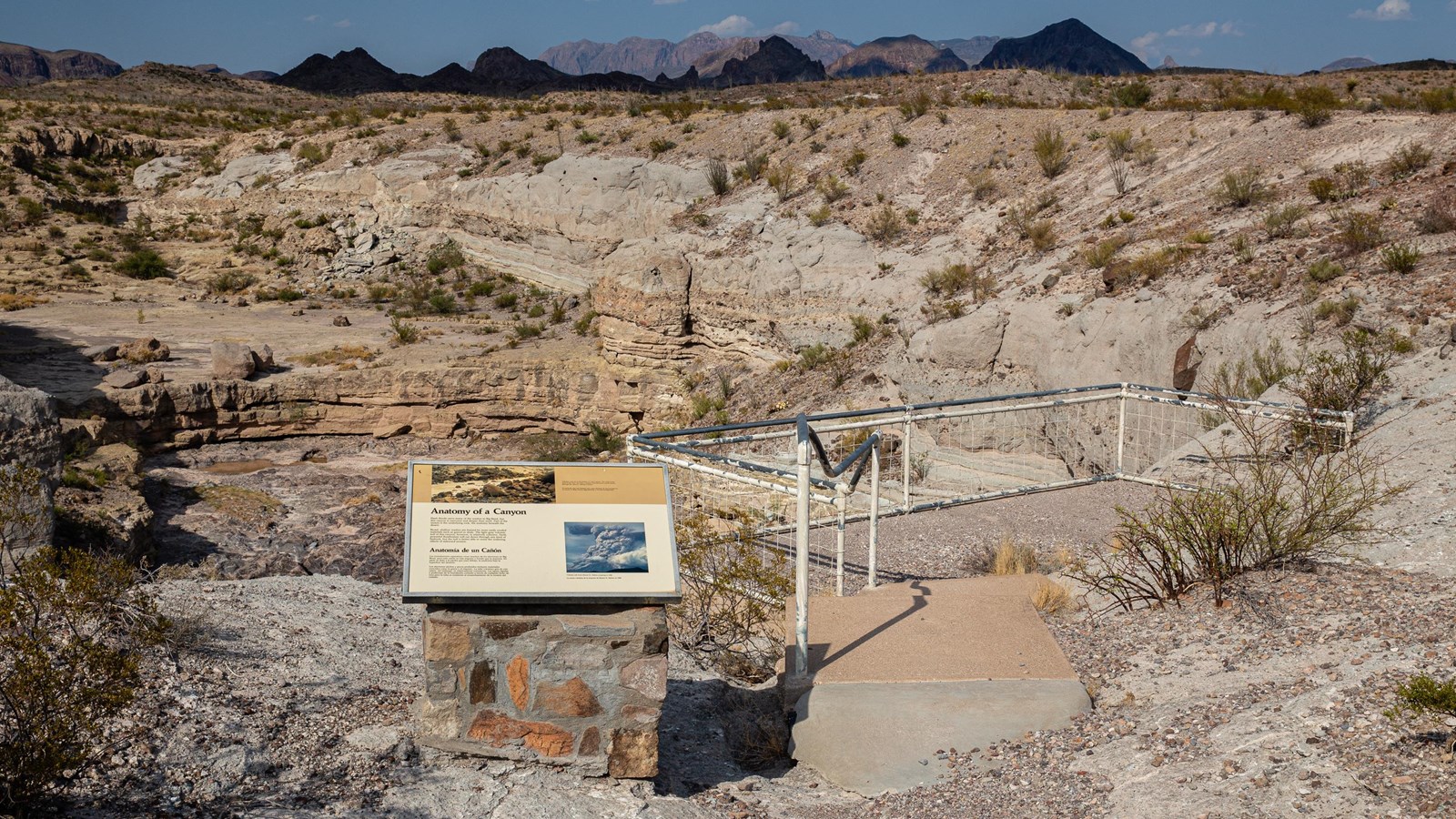Last updated: July 18, 2025
Place
Anatomy of a Canyon Exhibit

NPS/CA Hoyt
Quick Facts
Location:
19 miles from northern end of Ross Maxwell Scenic Drive.
Significance:
Geology
Amenities
5 listed
Cellular Signal, Historical/Interpretive Information/Exhibits, Parking - Auto, Scenic View/Photo Spot, Trailhead
A short walk along the rim of Tuff Canyon leads to three viewing platforms. An exhibit at the east (right-hand) overlook explains how the sheer walls of the canyon were formed. The trail between the overlooks is rock and gravel, with some steps near the western viewing platforms.
The exhibit text reads, "Flash floods carve many of the washes in Big Bend, but this canyon is narrower and deeper than most. Part of the reason is the underlying rock, the anatomy beneath the desert.
Broad, shallow washes are framed by more easily eroded materials such as gravel or shale. The light gray volcanic tuff of this canyon, however, is relatively cohesive. Swift, powerful floodwaters will cut down through any kind of bedrock, but the tuff is better able to resist the widening effects of sideward erosion."
A caption at the top right side of the exhibit reads, "Volcanic rocks lie at the bottom of Tuff Canyon. The creek is dry most of the time, but after a summer thunderstorm runoff churns through the canyon, cutting it deeper."
The exhibit text reads, "Flash floods carve many of the washes in Big Bend, but this canyon is narrower and deeper than most. Part of the reason is the underlying rock, the anatomy beneath the desert.
Broad, shallow washes are framed by more easily eroded materials such as gravel or shale. The light gray volcanic tuff of this canyon, however, is relatively cohesive. Swift, powerful floodwaters will cut down through any kind of bedrock, but the tuff is better able to resist the widening effects of sideward erosion."
A caption at the top right side of the exhibit reads, "Volcanic rocks lie at the bottom of Tuff Canyon. The creek is dry most of the time, but after a summer thunderstorm runoff churns through the canyon, cutting it deeper."
